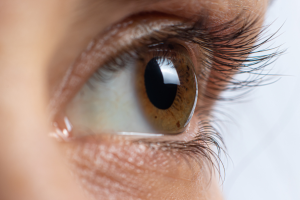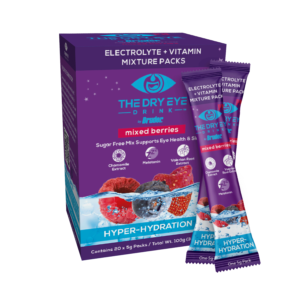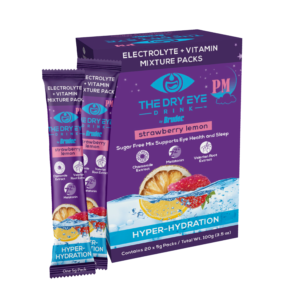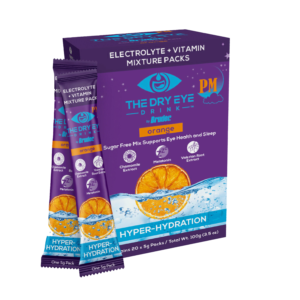
Poor sleep can affect your eye health, along with your overall wellness. The Tear Film and Ocular Surface Society (TFOS) reviewed comorbitities including Sjogren’s Syndrome, Mental Illness, Ocular Surface Disruption, and Biological Mechanisms.

The Ocular Surface 28 (2023): 262-303.
Authors: Anat Galor, Alexis Ceecee Britten-Jones, Yun Feng, Guilio Ferrari, David Goldblum, Preeya K. Gupta, Jesus Merayo-Lloves, Kyung-Sun Na, Shehzad A. Naroo, Kelly K. Nichols, Eduardo M.Rocha, Louis Tong, Michael T.M. Wang, Jennifer P. Craig
Biological Factors
Tear Film Stability: Sleep is crucial for maintaining the integrity of the tear film, which plays a key role in keeping the eyes lubricated. Disrupted sleep patterns may interfere with the secretion and distribution of tears, leading to instability in the tear film. This imbalance results in ocular surface irritation and increased DED symptoms.
Inflammatory Response: Lack of sleep is known to increase systemic inflammation, and this can exacerbate inflammation of the ocular surface, worsening dry eye symptoms. Inflammation is a key factor in DED pathogenesis, and patients with chronic sleep issues may experience a heightened inflammatory response that affects the eyes.
Hormonal Factors: Melatonin, a hormone that regulates sleep, also plays a role in ocular surface health. Reduced melatonin production due to sleep disturbances may negatively impact tear secretion and exacerbate DED.
Sjogren’s Syndrome
Primary Sjogren’s Syndrome: Sjogren’s syndrome, an autoimmune disease that affects tear and saliva production, is often associated with both DED and sleep disturbances. Patients with Sjogren’s syndrome frequently report poor sleep quality, with studies showing increased nighttime awakenings and difficulty staying asleep. The interplay between autoimmune activity and inflammation likely contributes to both conditions.
Study Insights: A review of multiple studies found that Sjogren’s syndrome patients have higher rates of obstructive sleep apnea and restless leg syndrome compared to the general population. Sleep disturbances in these patients may further aggravate DED symptoms due to increased eye dryness from reduced tear production during sleep interruptions .
Mental Illness
Anxiety and Depression: DED patients who suffer from poor sleep are more likely to experience mental health issues like anxiety and depression. The discomfort caused by dry eyes can lead to disrupted sleep, and in turn, sleep deprivation can worsen mental health symptoms, creating a vicious cycle.
Study Insights: Studies have shown that addressing sleep quality in DED patients can have a positive impact on their overall well-being, including reducing symptoms of depression.
Ocular Surface Disruption
Nocturnal Lagophthalmos: Some DED patients experience nocturnal lagophthalmos, a condition where the eyelids do not fully close during sleep. This leads to excessive evaporation of tears and can worsen DED symptoms. The condition is particularly common in patients with sleep apnea or facial nerve palsies, and addressing it can significantly improve both sleep quality and dry eye symptoms.







